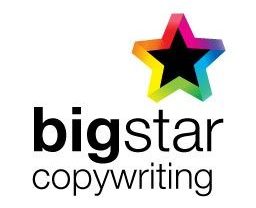
Your website is more than an online elevator pitch. It’s a place where you share your brand story and show users how you make a difference. It’s a place where customers and prospects go to find solutions and information. They will probably only spend 10 to 20 seconds on a page. The design is the first digital impression you make. The copy is the conversation that makes them stay.

Whether you are starting from scratch with a new site, have invested in a fresh design or are looking at a copy update – working out who is going to produce the words will be a major consideration. You will be thinking about whether this can be done in-house or whether you need to turn to an experienced website copywriter.
A great design will probably get you past the first 0.05 seconds of a visit. If your copy doesn’t then grab attention or visitors can’t quickly find what they are looking for – they will search elsewhere. If you were meeting together in an elevator they would get out at the next floor. The quality of the words on the page is crucial to making the visit worthwhile. So if you are looking at outsourcing the project, you’ll need to know what you should expect.
A good website copywriter will produce copy that works hard on many fronts
Great web copywriting needs to speak to your customers, prospects and search engines. Here are some of the reasons why:
- it helps you share your brand story in a way that build an emotional connection with customers and prospects that share the same values
- unique copy makes your brand more memorable so you stand out from competitors
- visitors are able to effortlessly find the information they are seeking
- compelling copy will point visitors to an action without a hard sell
- quality copy sends the right SEO signals so your pages are easier to find when people search
What makes for great web copy?

An experienced copywriter will know how to craft a brand story and then tell it through relevant, engaging content throughout your website. A good writer will show, not tell, how what you do is valuable. The copy should be:
Persuasive – unique, informative and persuasive copy inspires the reader to take an action. This can be anything from signing up for a newsletter or making a purchase. There is no hard sell. Ever.
Reader-friendly – it’s essential that the copy is clear, concise and readable.
Scannable – benefit-rich headings, sub-headings and bullet points help to get the attention of people who just scan a web page. When you think that, according to Nielsen Norman Group, on average only 28% of words are read on a page, and more often than not it’s only 20%, every word counts.
Optimising the page for search
You will want to make sure your website is found when people are searching to attract more visitors to the site. So the on-page copy will need to send the right signals to Google.
The copy should be written for the user first though – then Google. If a visitor comes looking for information and all they find is a confusing page they’ll probably just give up. If a page reads like a list of keywords or a sales brochure they will probably just click away. The user experience (UX) should be the first priority.
So, how does the quality of the copy impact Google rankings? Quality content matters because Google includes insights on user interactions to rank pages. How long a visitor ‘dwells’ on a page, ‘bounce rate’ when a user leaves a site after only visiting one page and ‘pogosticking’ when someone clicks on other search results to find an answer to their query – these can all impact how your website ranks.
Producing the words that turn readers into customers
Not all businesses have the right people with the right skillset in-house to be able to do all of the above. It takes hard work, time and energy to write the copy for a website. Producing the words that turns readers into customers requires a blend of storytelling skills, SEO know-how and business acumen. If you don’t have the time, resource or skillset in your business, then you will be joining the 42% of brands that outsource content creation.
If you choose to outsource, the points we’ve covered so far are a solid foundation for you to think about the questions you may want to ask to check your copywriter knows their stuff.
What will your copywriter need to know?
Understanding the types of questions that your copywriter will need to know will help you put a brief together for the project to scope your requirements and expectations.
Purpose
Here’s where you’ll need to pin down what you want your website copy to do. Prioritise the goals and the outcomes you want to achieve. Here are four points you may want to consider:
- Value proposition – what value do you add and what does your brand want to promise your customers?
- Brand perception – how is your brand is already perceived? Do you need to change any negative views or reinforce positive perceptions?
- Customer journey – put yourself in your customers’ shoes. How can your website enhance what they experience? Are there any gaps that need bridging?
- Current site – if you are looking at a copy refresh, it’s always helpful to share what it was about the old site that you didn’t like or wasn’t working.
 Target audience
Target audience
The writer will want to know who they are talking to and the types of target customers that you want to reach. Everything will flow from here. Once the audience (sometimes people talk about personas) has been defined, the copywriter will have a better understanding of how to tailor copy that is valuable for your target audience, meets their needs and uses the language that they speak.
Sharing your brand story
The art of brand storytelling is about constructing a narrative around your values and what you stand for. Your copywriter will want to build this narrative on your web pages to build an emotional connection with your customers.
Creating a consistent tone
This all brings us to your brand voice. A consistent tone is the bedrock of all of your marketing communications. Your website is no different and it needs to fit in with everything else including printed materials. By understanding your audience, brand story and the qualities you want to convey, your copywriter will be able to adopt a consistent tone across all pages. This will also need to be replicated on your blog and / or news pages.
A couple of other things that the copywriter will need to know:
- brand language and style
- Specific words and phrases that should be used throughout the copy, for example does your brand use ‘customer care’ or ‘customer service’.
If you do not have a tone of voice / style guide, ask your agency to work on this with you. This will help with consistency in all the content you produce.
How you make a difference
A long list of features or self-praise can make most people click on the back button or leave your site. People are looking for solutions so you’ll need to think about how you make a difference. You’ll need to think about the single, most important benefit that you want to get across, followed by the associated benefits
 Keywords and SEO
Keywords and SEO
As we mentioned earlier, your copywriter will be experienced in structuring web copy and using target keywords so the page ranks higher with the search engines. Are you providing the keywords you want to target or do you want the copywriter to do the research for you?
Calls to action
A call to action (CTA) is the point where you start to convert a reader into a customer. Whether you’re using a button, sign-up form or text at the foot of your page, these all need compelling words to convince the user to take action. Not all businesses do this. Research by Uxeria discovered that 70% of small businesses do not embed any CTA buttons on their homepage even to point people to click through to a special offer or download an eBook say. You’ll need to brief your agency if you need them to write these too.
How many words / pages?
Ask three SEO experts and you’ll probably get three different answers on word counts. So let’s go with Forbes on this one. At a minimum, your page should be 300 words. Anything less and Google could see the page as a ‘thin’ page and it may not rank as highly. Forbes suggests around 700 words at the top end. Producing copy for a website is about quality first. The copywriter will need space to include multiple keywords naturally. So the more space they have the better.
You’ll also need to brief your agency on the number of pages that need fresh copy or updating.
Deadliness and delivery
When do you need a first draft to be delivered and in what format?
An experienced copywriter will be able to meet the requirements and expectations that you set out in the original brief. Both sides will agree a deadline for the delivery of the first draft. You may want to make changes to the copy at this stage. Changes should still be in the scope of the brief. The copywriter will then produce a second draft ready to finalise. There could be an additional cost if changes are outside the brief.
Finally … how often should you update web copy?
In truth, there is no definitive answer. It depends on the type of business and what your users want from your site. However, you will always need to keep some content fresh and up to date and schedule reviews for pages with evergreen content and information.
 Regularly posting to your blog
Regularly posting to your blog
The benefits of keeping your blog fresh are two-fold: users have a regular stream of quality content. Regularly posting to your blog also shows that your brand is alive and well. The second benefit is websites that post regularly tend to rank higher on search engine results pages which drives more traffic to the site. HubSpot research shows that brands that post 16+ times per month see 3.5x more traffic.
Increasing content visibility on your homepage
You may want to shout about a great piece of content: a video, an eBook, Whitepaper, an infographic and post a teaser on your home page.
Page copy reviews
Be sure to schedule reviews for evergreen pages, which don’t need changing very often. Some brands do this quarterly. Some brands do this once per year. Google Analytics will give you powerful insights on how users experience your site and what organic keywords are driving conversions so you can edit copy to better optimise for SEO.
Obviously you will want to regularly review product and services copy to make sure it’s up to date. You will also want to add new pages / product descriptions to keep everything current.
Talk to your agency about how your website copywriter can help update your site on an on-going basis if you do not have the resources in-house.
What next?
We’ve been writing compelling, optimised web copy for B2B and B2C brands since 2005. Get in touch with us to find out how we can help your business grow.

 Target audience
Target audience Regularly posting to your blog
Regularly posting to your blog